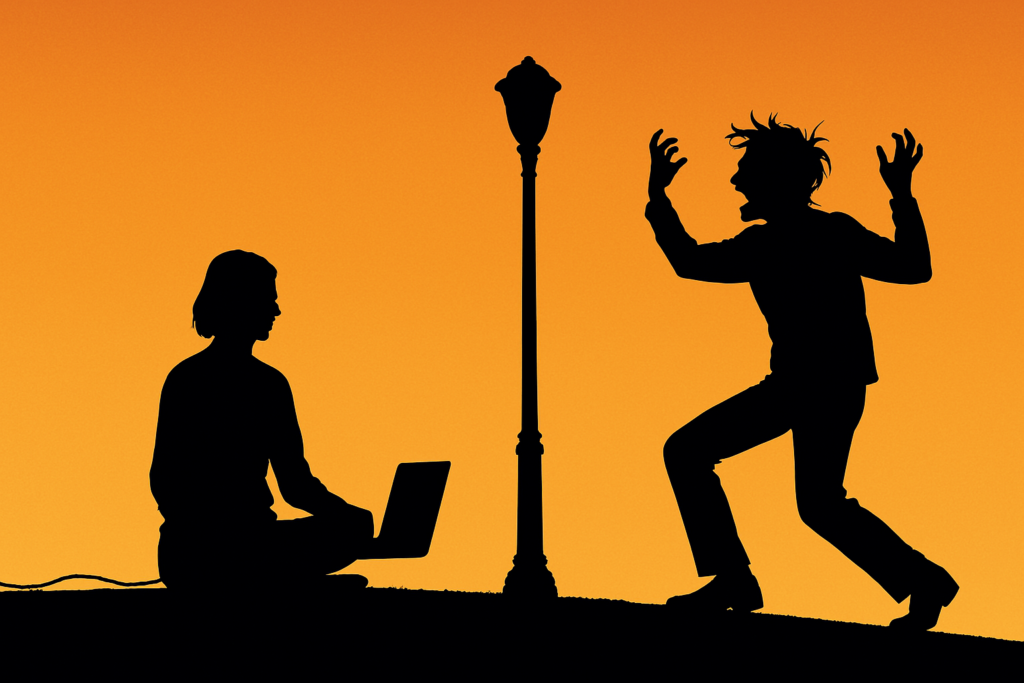
There’s a fine line between stepping back and falling apart.
Between choosing to disconnect and unraveling completely. Between reclaiming control and losing your grip. The difference? Intent.
We live in a world that mistakes noise for progress. If you’re not answering emails at midnight, are you even committed? If you’re not scrolling, responding, reacting – are you even relevant? There’s an unspoken rule that staying plugged in is the price of staying ahead. But I’ve seen the cost. I’ve seen leaders push past exhaustion, convinced that one more late night will fix everything. I’ve seen organizations double down on bad strategies simply because they were too busy to question them. I’ve seen people so determined to hold it all together that they don’t realize they’re coming undone.
The truth is, staying on all the time doesn’t mean you’re in control. It just means you’ve forgotten how to stop. And that’s where things get dangerous. Because if you don’t choose to step back, the choice gets made for you.
I’ve learned this the hard way. There’s a moment – one I think most people experience – where you realize you’ve crossed an invisible threshold. Where the constant pressure, the weight of expectations, the noise of it all starts to bend you in ways you didn’t notice until suddenly, something cracks. And once that happens, it’s no longer about managing stress; it’s about managing the fallout.
It’s not just personal. It happens at every level. Companies that never pause to reassess end up chasing momentum instead of direction. Leaders who never step back start making reactive, desperate decisions. Even entire societies teeter on this edge – the difference between collective wisdom and collective panic often comes down to whether people have space to think, or whether they’re just swept along.
The irony is that the people who most need to unplug are the least likely to do it. High-performers don’t rest; they push through. Visionary leaders don’t slow down; they move faster. We reward urgency, commitment, and endurance – until the moment it turns into burnout, irrationality, or self-sabotage. We admire those who stay in control, but rarely talk about what it actually takes to stay that way.
And that’s the real lesson here. Control isn’t about gripping tighter. It’s about knowing when to release. It’s about understanding that sometimes the most strategic move isn’t pushing forward – it’s stepping back. Athletes know this. The best don’t train until they collapse; they train, recover, and then train again. Writers know this. The best don’t force words onto the page; they write, walk away, and return with clarity. The strongest negotiators, decision-makers, and strategists all know the same truth: sustained excellence is about pacing, not pressure.
But let’s be honest – unplugging is hard. Not because it’s complicated, but because it feels like losing. When the world moves fast, stepping back feels like falling behind. Saying no feels like closing doors. Taking time feels like wasting it. It’s counterintuitive, but it’s necessary. Because if you don’t take that pause – if you don’t reclaim your own space – you don’t get to stay in control. You don’t stay unplugged. You end up unhinged.
The world won’t slow down for you. It won’t pause, it won’t make space, it won’t give you permission. That part is up to you. And the difference between staying composed and coming undone isn’t a matter of circumstances – it’s a matter of choice.